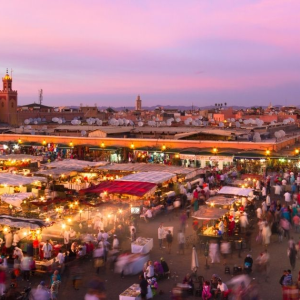How to Manage Salary in Dubai
Dubai is a city of dreams — shiny buildings, fancy brunches, designer shopping, and the illusion of endless possibilities. But behind the glamour lies a tough truth that many expats and even locals face: managing your salary in a city that’s built on spending can be overwhelming.
From high rent and daily food expenses to lifestyle pressure and unexpected costs, it’s easy to find yourself living paycheck to paycheck, even if your income looks decent on paper. Whether you’re earning AED 4,000 or AED 40,000, the money can slip through your fingers fast if you’re not mindful.
So, how can you actually manage your salary in Dubai and still live a life that feels balanced, secure, and enjoyable? Let’s dive into what real people are doing, what financial experts recommend, and the mindset shifts you need to survive — and thrive — in one of the world’s most expensive cities.

The Real Cost of Living in Dubai
Before you even start budgeting, it’s important to face the facts. Living in Dubai is expensive — and the cost of living is often higher than newcomers expect. Rent, of course, takes the biggest chunk of your income.
According to Bayut’s 2024 data, the average rent for a one-bedroom apartment in areas like Bur Dubai, Al Nahda, or International City ranges between AED 35,000–60,000 per year. In popular expat areas like Marina or Downtown, it can go up to AED 100,000 and beyond. Add utilities, groceries, transport, and internet — you’re easily spending AED 5,000–7,000 per month on just the basics.

Many people, especially fresh expats, underestimate these numbers and fall into the trap of using credit cards or personal loans to “keep up.” That’s why managing your salary isn’t just about saving — it’s about surviving smartly.
Step One: Understand Where Your Money Goes
The first step to managing your salary is understanding your spending habits. You can’t fix what you don’t track. Use apps like Spendee, YNAB (You Need a Budget), or even a simple Excel sheet to monitor every dirham.
For one month, write down everything — rent, food, taxi rides, weekend outings, online shopping, coffee, takeout. You’ll be surprised how much goes into small daily purchases like Karak tea or delivery charges.
Once you see the full picture, you’ll have better control and less guilt. Awareness brings clarity.
Step Two: The 50-30-20 Rule — With a Dubai Twist
One of the most popular salary management frameworks is the 50-30-20 rule. But in Dubai, it needs a little tweaking.
Traditionally, it goes like this:
- 50% of your salary for needs (rent, food, transport)
- 30% for wants (entertainment, shopping, eating out)
- 20% for savings or debt repayment
In Dubai, where rent alone can take up 40–60% of your salary, the formula may look more like:
- 60% for needs
- 20% for wants
- 20% for savings/debt
Of course, this varies by income level. If you’re earning less than AED 6,000 per month, it’s harder to save. But if your salary is higher, you should aim to reverse the pattern — keep your lifestyle minimal and boost your savings.

Step Three: Negotiate Your Salary and Benefits
Your salary isn’t just your basic monthly number. A smart financial move starts with negotiating your full compensation package — especially before signing a contract.
Ask for accommodation allowance, transport, medical insurance, relocation bonus, or even a yearly ticket home. These extras help you reduce personal expenses significantly.
Many newcomers make the mistake of focusing only on the base salary. But if your company covers your rent or gives you housing allowance, that could save you thousands monthly.
Step Four: Avoid the Lifestyle Trap
It’s easy to fall for Dubai’s luxury lifestyle — brunches, mall shopping, beach clubs, cars on EMI, and endless subscription services. The city is built to tempt you.
But what looks affordable in the moment often adds up. Dining out even twice a week can cost you AED 800–1,200 per month. A few impulse buys from Instagram boutiques, monthly salon appointments, and “just this once” cab rides can eat into your savings fast.
The real flex in Dubai isn’t designer bags. It’s having an emergency fund, being debt-free, and sleeping peacefully without worrying about rent.
Step Five: Create an Emergency Fund (ASAP)
This one’s non-negotiable. Life in Dubai can be unpredictable — job loss, medical emergencies, visa cancellations, or sudden rent hikes.
Aim to build an emergency fund of at least 3–6 months of your basic expenses. If your monthly needs are AED 5,000, try to save at least AED 15,000–30,000. Keep this in a separate account, untouched, and treat it like insurance.
Even if you start small — say AED 500 a month — that’s better than nothing. It buys you peace of mind and gives you options when life throws surprises.
Step Six: Get Smart with Shared Living
One of the most effective ways to cut costs is by sharing accommodation. It may not be glamorous, but sharing a flat in areas like Al Barsha, Karama, or Oud Metha can bring down your rent to AED 1,500–3,000 per month — compared to AED 5,000+ in solo flats.
Many single expats prefer co-living spaces that include Wi-Fi, utilities, cleaning, and even Netflix. If you can adjust a little, you’ll free up a good portion of your income for savings or investments.
Step Seven: Automate Your Savings
Saving money shouldn’t be a fight with your willpower every month. Automate it. As soon as your salary hits, transfer a fixed amount to a savings account or investment fund. Out of sight, out of mind.
You can also use UAE-based platforms like Sarwa, StashAway, or National Bonds for small-scale investments. Even AED 500 a month can grow into something substantial over a few years.
Don’t wait to “start saving when I earn more.” That mindset keeps people broke. Start now, even if it’s tiny.
Step Eight: Reduce Debt and Avoid Easy Loans
Credit cards, Buy Now Pay Later apps, and salary advance offers can trap you. They seem helpful when cash is tight, but over time, they add financial stress and high-interest repayments.
If you already have debt, prioritize paying it off. Speak to your bank about restructuring, or get help from financial advisors. And if you don’t have debt yet — keep it that way.
Use debit cards for regular expenses. If you do use credit cards, pay the full amount before the due date to avoid interest.
Step Nine: Make a Second Income Stream
In a city like Dubai, having just one income can feel risky — especially if you’re supporting a family back home.
Explore freelance opportunities, weekend gigs, or side hustles. If your visa allows and you follow the legal process, you can offer services like tutoring, content creation, design, delivery, or part-time event work.
Even making AED 1,000–2,000 extra a month can be a game changer for your budget. Use this extra income strictly for saving or investing, not spending.

Step Ten: Learn About Taxes, Remittances, and Planning Ahead
Dubai has no personal income tax — which is a huge advantage. But that doesn’t mean you shouldn’t plan ahead.
If you’re sending money home, use low-fee remittance apps like Wise, Instarem, or Al Ansari to save on charges. Understand currency fluctuations and transfer when rates are favorable.
Also, think long-term. Are you planning to stay in Dubai for 5 years? 10? Forever? Your financial plan should match your life plan. Many expats work here for a decade and leave without savings. Don’t let that be your story.
Final Thoughts: Wealth Is Peace, Not Pressure
Managing your salary in Dubai is not about being rich. It’s about feeling safe, sleeping well, and knowing that you’re in control — not the city.
You don’t need to earn more to save more. You need to be more intentional. You don’t need to cut out all joy. You need to cut out what doesn’t align with your goals.
It’s okay to say no to a night out. It’s okay to rent a modest apartment. It’s okay to wear the same outfit twice. What’s not okay is sacrificing your peace to impress strangers.
Dubai can either make you feel broke or make you financially smart. The choice, believe it or not, is still yours.
Follow us on instagram: UAE STORIES













